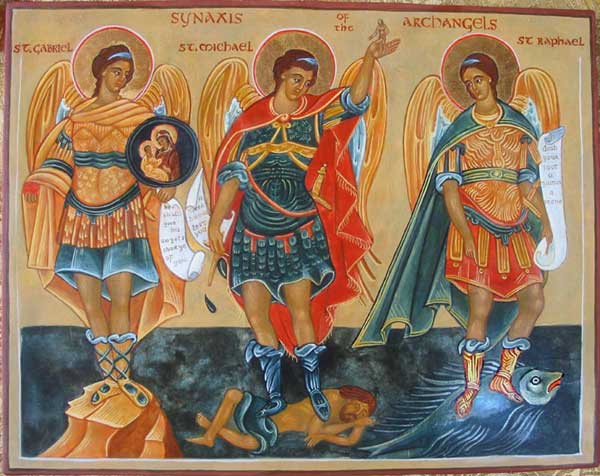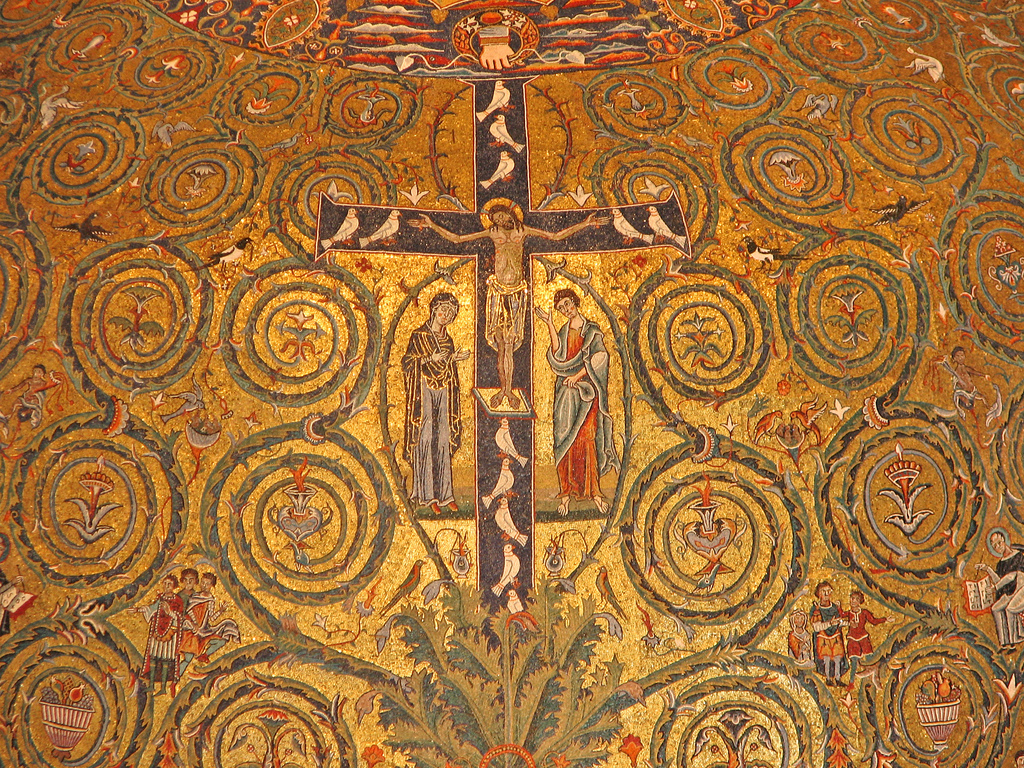 Over the past year, I’ve spoken with countless individuals – from regular lay folk to educators, deacons to bishops – about the great blessing that is coming our way in the new English translation of the Roman Missal, and it seems to me that the overwhelming majority of Catholics tend to share my enthusiasm for the forthcoming corrections to the liturgical text. (And make no mistake about it, my friends, this is exactly what we’re awaiting in large measure; a long overdue attempt to correct the poorly done and unceremoniously rushed translations that have been in use over the last four-plus decades.)
Over the past year, I’ve spoken with countless individuals – from regular lay folk to educators, deacons to bishops – about the great blessing that is coming our way in the new English translation of the Roman Missal, and it seems to me that the overwhelming majority of Catholics tend to share my enthusiasm for the forthcoming corrections to the liturgical text. (And make no mistake about it, my friends, this is exactly what we’re awaiting in large measure; a long overdue attempt to correct the poorly done and unceremoniously rushed translations that have been in use over the last four-plus decades.)
I’ve also been keeping an eye on news items and blog posts on the topic as well, and wouldn’t you know it, the naysayers are getting more than their fair share of attention in some circles; so much so that if one didn’t know any better it would seem that a major crisis is at hand rather than a great blessing.
This is what I call the “Global Missal Dissent System” in action. Here’s how it works:
Some small group of Catholic dissenters loosely organized under an official sounding name, or perhaps even a single left-leaning individual with an impressive pedigree (ideally clerical in both cases), raises a red flag or two about the new translation. In neither instance can the case be made that these opinions are representative of the broader Catholic population much less the Magisterium, but undaunted, sympathetic media types seize the opportunity to create the illusion that some sort of popular uprising is in the offing.
Well, it’s “crunch time.” It’s time to begin preparing the way for the Roman Missal – Third Edition in earnest, it’s time to discern between the reasonable concerns of faithful Catholics and the petty delay tactics of foot-dragging progressives, and that means it’s time to address some of the more well-traveled opinions being expressed by those who are at pains to paint the new translation as a disaster in the making.
Let me begin, however, by saying that some of the concerns being voiced about the Missal may be entirely valid, even if the hyperbolic doomsday predictions that sometimes accompany them are not. It serves no one to pretend otherwise.
For example, a number of well qualified people — theologians, Latinists and clergy covering a broad spectrum of ideological and theological orientations — have expressed dismay over the process of the translation. Apparently, the text that we now await reflects changes that were made in 2010 by the Congregation for Divine Worship (CDW) to some of the previously approved 2008 text (in the priest’s parts of Holy Mass) that was submitted by the bishops’ conferences and the ICEL (International Commission on English in the Liturgy). These changes are not necessarily considered “upgrades” shall we say in each and every case by some people, me included.
To this I would simply point out that the work of translation can often be as much an art as a science, and in all cases we are talking about a human endeavor. It is unreasonable, therefore, to expect everyone to agree upon what makes for the “perfect” or even the preferred translation in all circumstances.
Let’s be honest; it is entirely possible that some of the text we receive will reflect, at times, what only a powerful minority considered to be the best translation available. (Sound familiar?) To which I say, welcome to human affairs! On that same note, it is perhaps even less realistic for anyone to expect the process to be devoid of any evidence of our fallen nature. That’s just not possible. So now what.
There will be plenty of time to look back on the process to determine “who struck John,” and it may in fact become useful to do that at some point. In the meantime, however, we need to focus on the task at hand; playing 40+ years worth of catch-up in the matter of liturgical instruction in just nine months. Along the way, we can embrace this wonderful opportunity by celebrating the fact that the new translation (even in cases where the 2010 text seems inferior to the 2008) is by far a vast improvement over the text we’re currently using.
The truth is, where human beings are involved there’s gonna be warts. In the present case, there will no doubt be at least some passages coming our way that have room for even greater improvement, and guess what? That doesn’t mean the sky is falling, neither does it mean that the Church is flawed in Her authoritative structures (remember Who instituted them?) as some would have you believe.
Among other concerns getting gratuitous media coverage is a news item that was recently disseminated the world over by Catholic News Service (CNS is wholly owned and largely funded by the USCCB and is not to be confused with CNA) reporting that the Association of Catholic Priests in Ireland (ACP) “has made an urgent plea to the country’s bishops to postpone the introduction of the new English translation of the missal for at least another five years.”
The reasons behind ACP’s “urgent plea” were given considerable ink in the story; among them, allegations leveled by a priest who said that the text is “archaic, elitist and obscure.” Another priest was quoted as saying that the Missal “is not acceptable,” warning that “if these new texts are imposed, they could create chaos in our church.”
While the CNS writer and her editors made it a point to let readers know that similar concerns “have been raised in English-speaking countries around the world, including the United States and Canada,” they apparently couldn’t find space in this story for one solitary quote in defense of the new translation. This in spite of the fact that they share an office building with the U.S. Bishops’ Secretariat for Divine Worship and have ready access to any number of its members who would have happily provided one. (Msgr. Anthony Sherman and Fr. Rick Hilgartner come to mind.)
The ACP press release from which CNS presumably took its information includes, though they failed to include it, the time-honored whine that the new translation “will insult and offend women who will be rightly enraged by the continued deliberate use of non-inclusive language,” even though the sacred Magisterium has articulated its position on this matter rather clearly. (E.g., see Liturgiam Authenticam – 30, 31.)
The unreported reality is that ACP is little more than a small leftwing splinter group of dissenters whose founding objectives (published one click deep into their website) includes “establishing a Church where all believers will be treated as equal” (because clearly that’s not the case today?) and placing “special emphasis” on such “teachings of the Second Vatican Council” as “the primacy of the individual conscience;” a canard that all but the truly uninformed recognize as wholesale rubbish. (See here.)
Needless to say, had CNS reported the story in its fullness, many readers would have recognized ACP’s “spirit of Vatican II” credentials and their utter lack of credibility on the matter. As it is, however, this lopsided “news” item was promptly reprinted by enemies of the new translation (like the National ahem… “Catholic” Reporter and America Magazine) and if one were not careful to consider sources, it might seem that all is doom and gloom when in fact it is not.
Now that is not to say that this new translation of the Roman Missal doesn’t represent a real challenge for us; on many levels, it certainly does.
For one, it is a challenge to liturgical pride. After four decades of allowing our creative impulses and personal tastes to exercise undue influence on how we “do liturgy,” it’s going to take great humility and the assistance of God’s grace for us to willingly “subordinate ourselves to the Divine” at Holy Mass, but according to the Fathers of Vatican Council II, that is exactly what the liturgy requires of us (cf SC 2).
It will be a challenge for many of us to embrace the fact that “the visible signs used by the liturgy to signify invisible divine things have been chosen by Christ or the Church,” including, of course, the language that we use and the words that we speak (SC 33).
It will be a challenge, as Pope Benedict said, for many “to adjust to unfamiliar texts after nearly 40 years of continuous use of the previous translations.”
Yes, it will be a challenge on many levels, but challenges such as these are nothing more than the gateway to God’s blessings. In fact, if you think about it; challenge and gift simply go together don’t they?
Will everyone embrace this challenge with docility, even in the face of their concerns? No, probably not, but even this represents the gateway to God’s blessings for those who love Him. So the next time you encounter a news item or a blog post about the pending liturgical disaster, regardless of the apparent credibility of its source, take a step back and remind yourself of what Pope Benedict said of the forthcoming Missal:
“Through these sacred texts and the actions that accompany them, Christ will be made present and active in the midst of His people.”
And for that we can say, thanks be to God!



